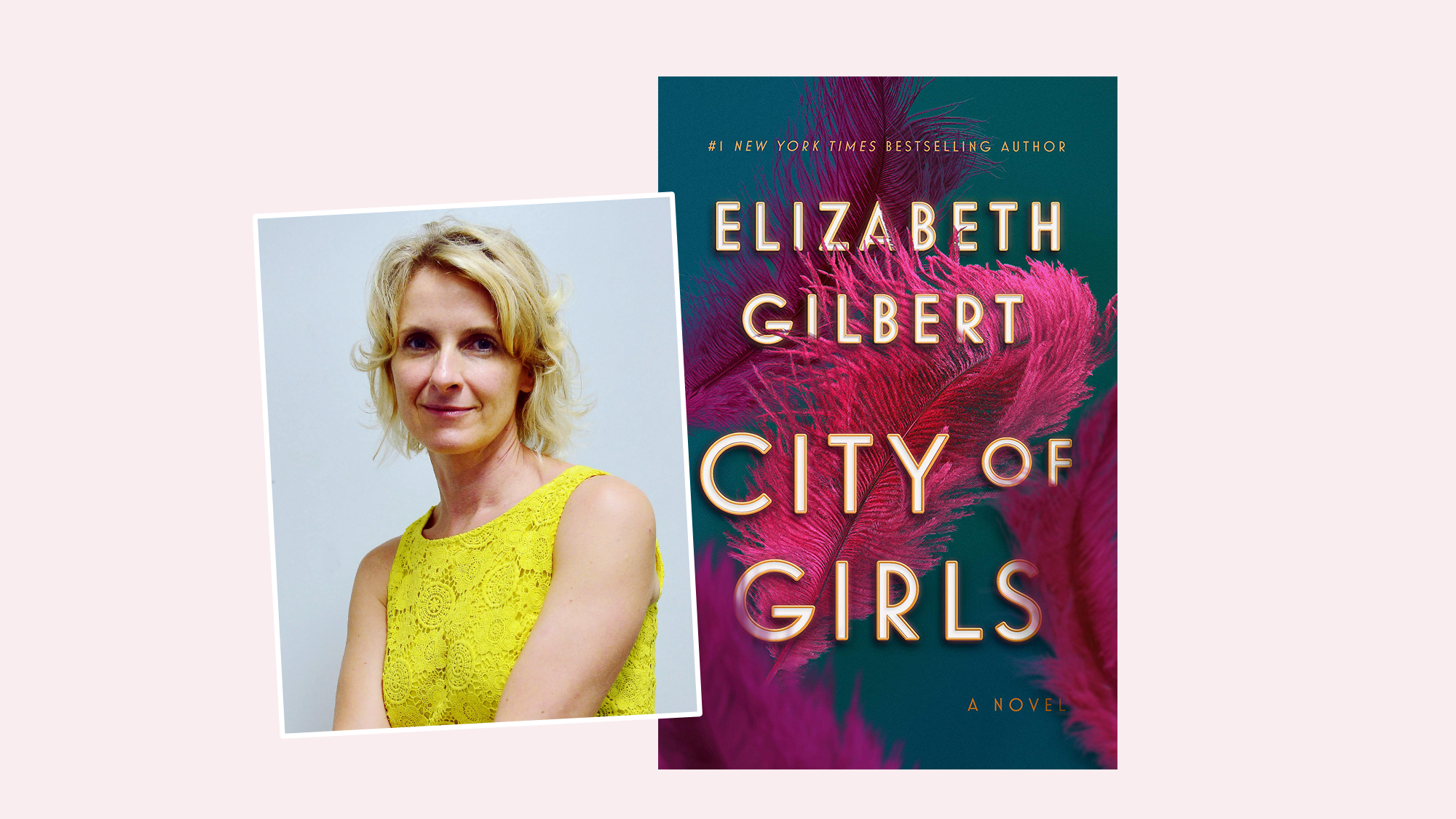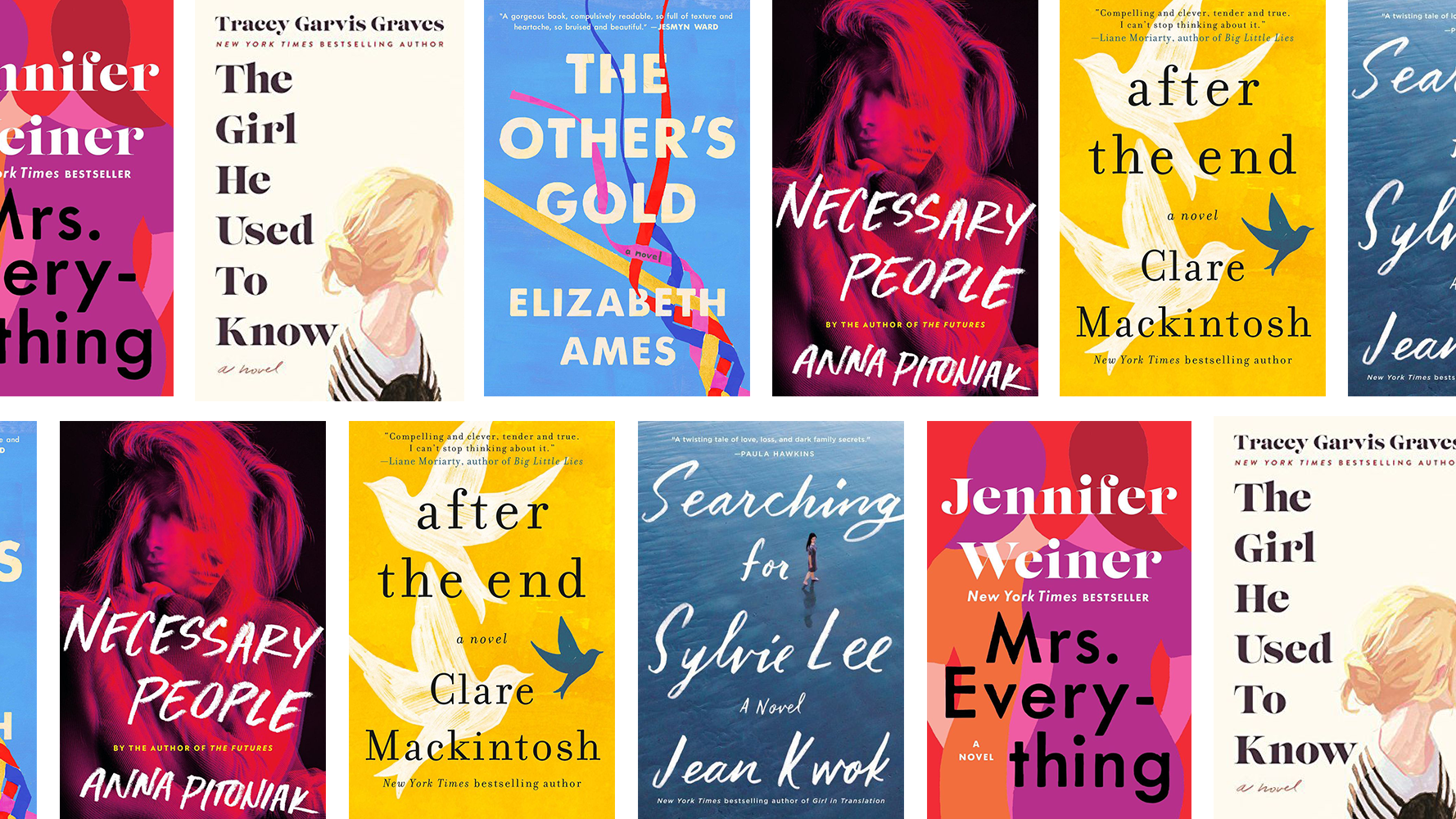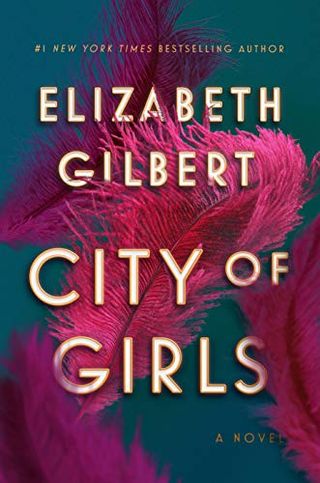Elizabeth Gilbert's 'City of Girls' Is a Loving Ode to Promiscuous Women
And, the author tells Marie Claire, she had to interview a lot of 90-year-old ladies about their sex lives to write it.

In the introduction to her buzzy new novel City of Girls (out June 4 from Riverhead Books), Elizabeth Gilbert announces that she set out to write “a book that would go down like a champagne cocktail.” And while it’s certainly an effervescent and absorbing read, that description is a little deceptive: The story of Vivian, a young aspiring costume designer coming of age in 1940s New York City, also ponders much bigger questions, like what growing up looks like when you’re a woman, how guilt hovers over our lives, and how we end up choosing our families. Oh, and it’s also about sex. Lots of it, some hilarious and all without remorse.
Gilbert talked to Marie Claire about her sparkling new novel and whether she found the answers to any of those big questions.
How did you come up with the idea for this novel?
For years, I’ve wanted to write a book about promiscuous girls—having been one, having known a lot of them—and I felt there was something missing in the Western canon of literature, a story about women with really active sex lives whose lives are not destroyed by it. That doesn’t mean there aren’t consequences, and it doesn’t mean that there isn’t learning and growing and even pain. It just means that they don’t end up ruined, because that tends to be what the story has always been, and I’ve been frustrated with that as a female reader.
I’m curious about how you researched this book, because every few lines there’s something so specific—a landmark, a fabric choice—to the 1940s theater world.
I did research on the book for about four years. It was a vast amount of stuff from these interviews with women in their 90s, who I felt like I had to get to quickly. I should not be putting this book off for even another six months. Also, the New York Public Library has a theater wing with a collection of all its theater resources, so I spent a lot of time there reading letters and scripts and diaries from productions of the 1940s. Even trying to get the pricing right—how much tickets were, how much costumers were paid, that sort of thing. I also read a lot of novels written between 1935 and 1955, and that’s where I feel like I got the language so that I felt like it was as accurate as it could be.
Something I loved about the framing of this novel is that by setting it in the 1940s but telling it from the perspective of 2010, you're able to have older Vivian sidebar the action and say, "You know, I know better now.”
And that was the experience that I had when I was interviewing these women in their 90s in preparation for the book. One of the concerns I had as I started writing it was we need to get the sex correct for the era. I don't wanna impose too modern a sexual viewpoint on a different time, and at first I didn't know whether the story [I wanted to write] could have existed in that age.
What I discovered is it absolutely could have existed and did exist. Every generation thinks they're the people who invented sex but actually people have been doing it for a long time. Some of it with a great deal of enthusiasm.
The girls like us have existed for a long time.
My favorite interview was this woman in her 90s named Norma Amigo, who was a former showgirl who had never gotten married—sill lived in the same apartment in the Upper West side that she'd moved into in 1952. She’d been John Wayne's girlfriend and a whole bunch of other people's girlfriend, and had just lived this very sensually-driven life without the slightest regret or remorse. And I remember thinking, “How am I gonna get all these elderly women to talk to me about sex?” With Norma it was like, “How am I gonna talk about anything else? This is the only thing she wants to talk about!” And I was so emboldened to write this book because of her, because at one point I asked her, “Did you ever regret not being married and having children?” And she—this was her exact quote, a 94-year-old woman—she said, “Who the hell wants to fuck the same man for 60 years?”
Get exclusive access to fashion and beauty trends, hot-off-the-press celebrity news, and more.
Once she said that, I realized that I could absolutely write this book the way I wanted to. The girls like us have existed for a long time—more time than you might think.
There’s also this really interesting thread running through the book of how people become comfortable with their own sexuality or deploy it for their own means.
I look around the world and what I think I see is that everyone is trying to solve sex. It’s such a mystery, and it’s so powerful. I see people trying to solve it by having a lot of it and people trying to solve it by not having any of it. And I see people trying to solve “What do we do about sex in a 30-year marriage?” We’ve got values around this, and then we’ve got physical urges that we can’t seem to manage. And I don’t know that I’ve solved it any better than anyone else; I’m fascinated in the different ways people deal with this thing that’s bigger than us.
A version of this article originally appeared in the June 2019 issue of Marie Claire.
RELATED STORY

Cady has been a writer and editor in Brooklyn for about 10 years. While her earlier career focused primarily on culture and music, her stories—both those she edited and those she wrote—over the last few years have tended to focus on environmentalism, reproductive rights, and feminist issues. She primarily contributes as a freelancer journalist on these subjects while pursuing her degrees. She held staff positions working in both print and online media, at Rolling Stone and Newsweek, and continued this work as a senior editor, first at Glamour until 2018, and then at Marie Claire magazine. She received her Master's in Environmental Conservation Education at New York University in 2021, and is now working toward her JF and Environmental Law Certificate at Elisabeth Haub School of Law in White Plains.
